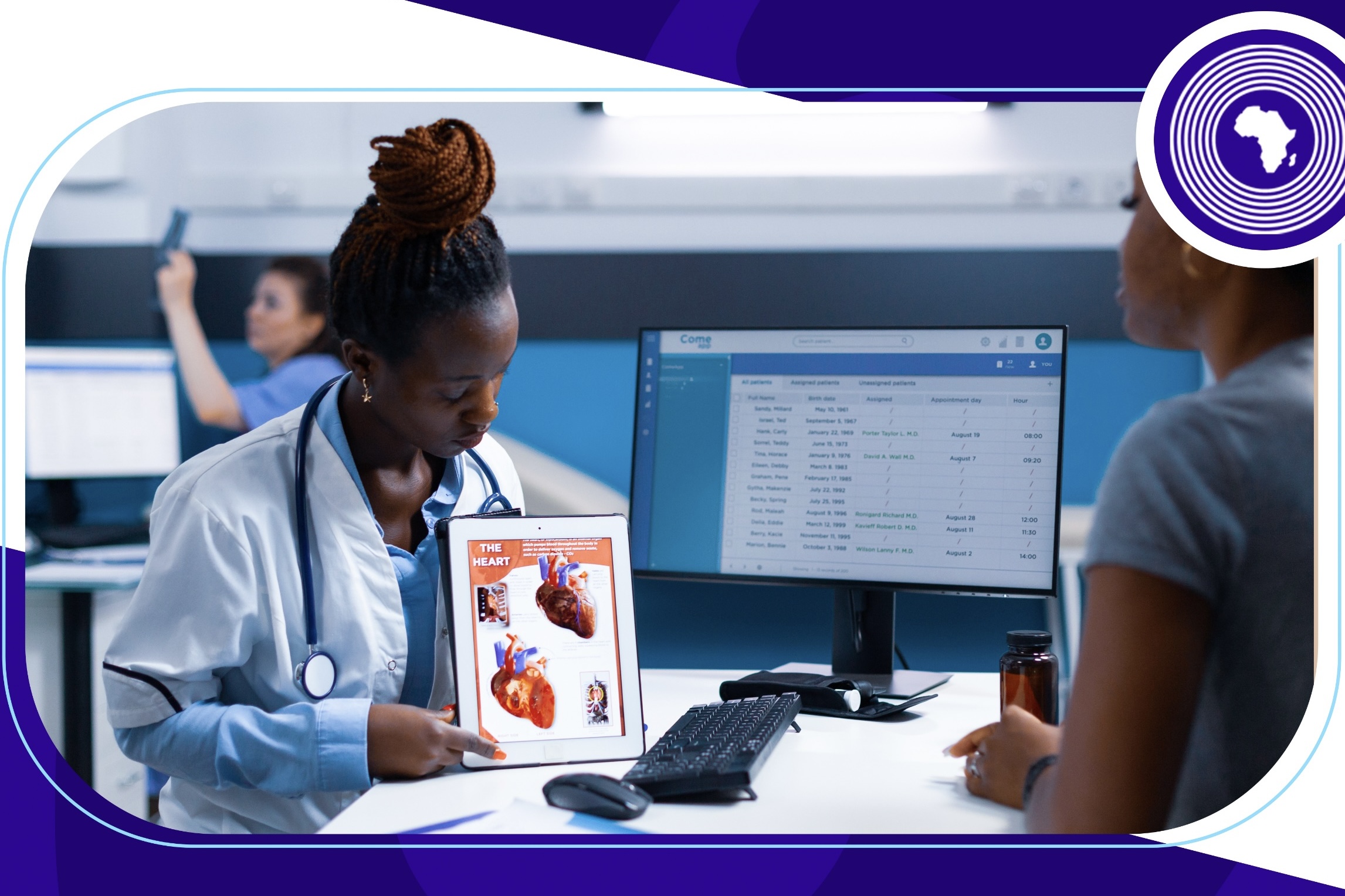The Digital Transformation of Health Systems: A Must-Have for Every Health Professional
by Iheanyichukwu Samuel Onwubiko
The healthcare industry is undergoing a profound digital transformation, with the integration of technology reshaping how healthcare is delivered, managed, and experienced. This digital revolution, driven by advances in artificial intelligence (AI), data analytics, telemedicine, electronic health records (EHRs), and wearable devices, is not merely an option but a necessity for every health professional in today’s rapidly evolving landscape.
Understanding the Digital Health Landscape
Digital health encompasses a wide range of technologies and applications that leverage digital tools to enhance healthcare delivery, improve patient outcomes, and streamline administrative processes. This includes:
- Electronic Health Records (EHRs): EHRs have replaced traditional paper-based records, providing a centralized, accessible platform for patient data. This facilitates better care coordination, reduces medical errors, and enables data-driven insights.
- Telemedicine: Telemedicine enables remote consultations and healthcare services through video conferencing and other digital communication tools. This expands access to care, especially for patients in rural or underserved areas, and reduces the need for in-person visits.
- Wearable Devices and Remote Patient Monitoring (RPM): Wearables like smartwatches and fitness trackers collect health data such as heart rate, activity levels, and sleep patterns. RPM uses these devices to monitor patients remotely, allowing for early detection of health issues and personalized interventions.
- Artificial Intelligence (AI) and Machine Learning (ML): AI and ML algorithms can analyze vast amounts of healthcare data to identify patterns, predict disease risk, and assist with diagnosis and treatment planning.
- Mobile Health Apps: Mobile apps empower patients to track their health, access educational resources, and communicate with healthcare providers.
The Impact of Digital Health on Health Systems
The digital transformation of health systems has far-reaching implications for healthcare professionals, patients, and the healthcare industry as a whole. Here are some of the key impacts:
- Enhanced Patient Care: Digital health tools facilitate more personalized and proactive care. EHRs provide a comprehensive view of a patient’s medical history, enabling providers to make informed decisions. Telemedicine expands access to care, while RPM allows for continuous monitoring and early intervention.
- Improved Efficiency and Cost Reduction: Digital health streamlines administrative processes, reduces paperwork, and optimizes resource allocation. This translates to cost savings for healthcare organizations and improved efficiency in care delivery.
- Data-Driven Insights: The vast amount of data generated by digital health technologies can be leveraged to gain valuable insights into population health trends, disease patterns, and treatment outcomes. This data can inform research, policy decisions, and public health initiatives.
- Patient Empowerment: Digital health tools empower patients to take an active role in managing their health. Mobile apps and wearables provide them with information, tools, and support to make informed decisions about their well-being.
- Increased Access to Care: Telemedicine and mobile health apps bridge geographical barriers, enabling patients in remote or underserved areas to access healthcare services they might not otherwise have.
- Clinical Decision Support: AI-powered clinical decision support tools assist healthcare providers in diagnosing diseases, choosing treatment options, and predicting patient outcomes, leading to more accurate and effective care.
Challenges and Considerations
While the benefits of digital health are substantial, there are also challenges and considerations that healthcare professionals and organizations must address:
- Data Security and Privacy: The sensitive nature of healthcare data necessitates robust security measures to protect patient privacy. Cybersecurity threats are a constant concern, and healthcare organizations must invest in safeguards to prevent data breaches.
- Interoperability: The seamless exchange of health data between different systems and providers remains a challenge. Interoperability is crucial for ensuring that patient information is readily available when and where it is needed.
- Digital Divide: Not all patients have equal access to digital health technologies due to factors like socioeconomic status, geographic location, and digital literacy. Efforts must be made to bridge this digital divide and ensure equitable access to care.
- Regulatory Landscape: The regulatory framework for digital health is evolving rapidly. Healthcare professionals and organizations must stay abreast of changing regulations to ensure compliance.
- Cost and Implementation: The adoption of digital health technologies can be costly, particularly for smaller practices. Healthcare organizations need to carefully evaluate the cost-effectiveness of these tools and develop implementation strategies that align with their resources and goals.
The Future of Digital Health
The future of digital health is promising, with continued advancements in technology expected to further transform the healthcare landscape. Some of the emerging trends include:
- Precision Medicine: Digital health tools will increasingly enable personalized medicine, tailoring treatments to an individual’s unique genetic makeup and health profile.
- Virtual and Augmented Reality: VR and AR technologies have the potential to revolutionize medical education, training, and even surgical procedures.
- Blockchain: Blockchain technology can enhance data security and interoperability in healthcare by creating a secure, decentralized ledger for health records.
- The Internet of Medical Things (IoMT): The IoMT connects a vast array of medical devices and sensors to the internet, enabling real-time data collection and analysis for improved patient care and monitoring.
Medics in Tech
The digital transformation of health systems is not just a trend; it is a fundamental shift in how healthcare is delivered and experienced. Healthcare professionals must embrace this transformation, equip themselves with the necessary digital skills, and leverage these tools to improve patient outcomes, streamline processes, and drive innovation in healthcare. The integration of digital health is not only a must-have but a necessity for every health professional committed to providing the best possible care in the 21st century.
At Medics in Tech, the dynamic coalition of medical professionals, technology aficionados, and industry leaders at the forefront of healthcare innovation, harnessing the power of digital solutions and medical expertise to transform healthcare delivery and education, hence impacting heavily on healthcare systems. Be a part of the movement that is shaping the future of healthcare and unlock the endless possibilities of digital health!








